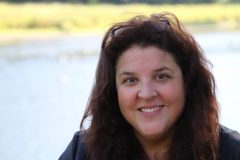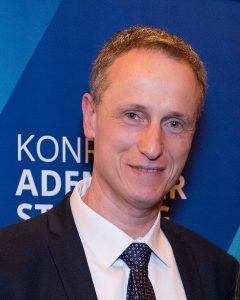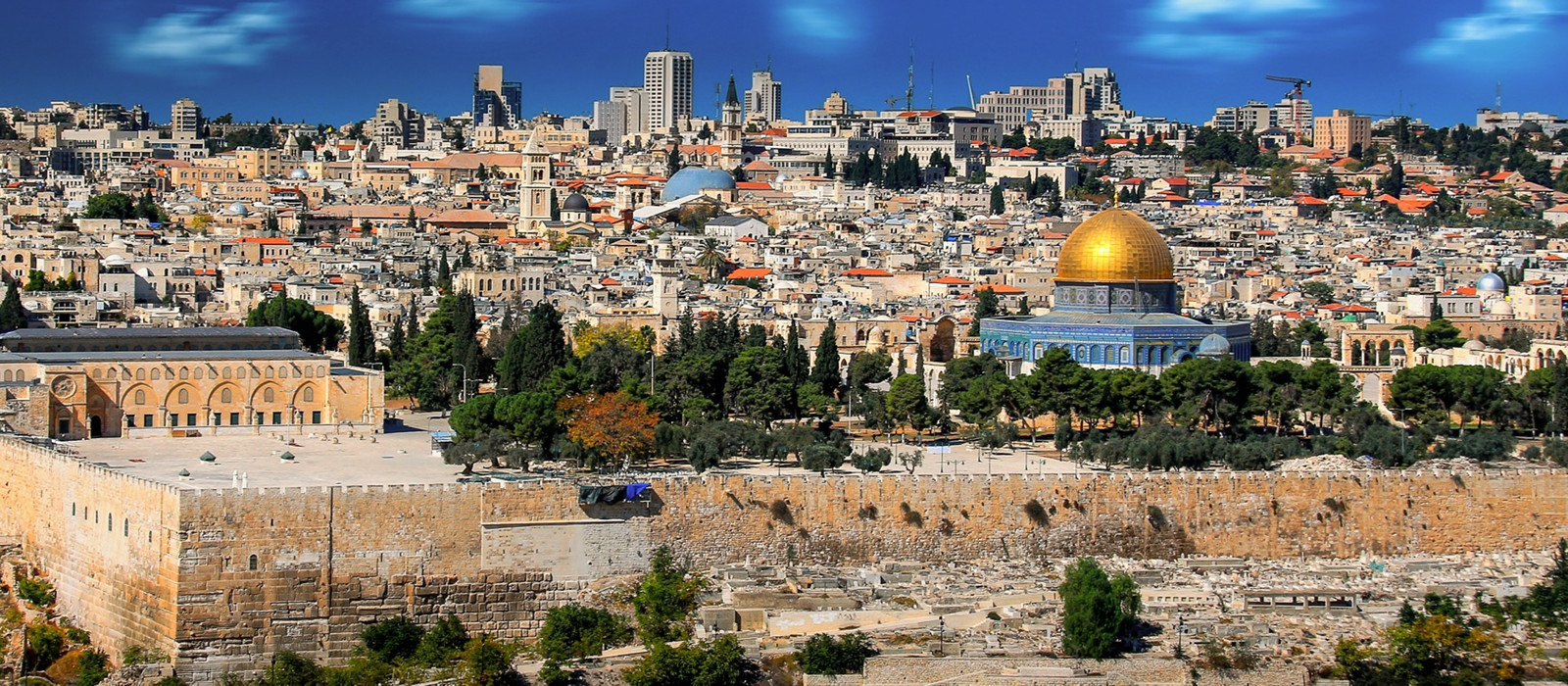Professor – Deidre Butler
Associate Professor, Director of the Zelikovitz Centre for Jewish Studies
- Degrees: BA, MA, PhD Concordia University
- Phone: 613-520-2600 x 8106
- Email: deidre.butler@carleton.ca
- Office: 2A49 Paterson Hall
Biography
Dr. Deidre Butler is Director of the Zelikovitz Centre for Jewish Studies and is the Jewish Studies specialist in the Religion program at Carleton University. Butler is an award-winning teacher whose teaches in the areas of modern Judaism, gender, sexuality and religion, and religious and philosophical responses to the Holocaust. Butler’s research operates at the intersections of religion, ethics and feminist thought. Her current research program targets modern Jewish life and thought as its object of study and develops a sustained critique of the ways in which philosophical and cultural narratives efface and dislocate lived gendered, and embodied experiences. Her research complicates and contests these distortions by marshalling a range of types of evidence (including original ethnographic data, as well as theological, philosophical, and artistic responses).
Her current research project, in collaboration with Professor Betina Appel Kuzmarov (Law and Legal Studies), Troubling Orthopraxy: A Study of Jewish Divorce in Canada is an interdisciplinary ethnographic project that investigates the phenomenon of Jewish religious divorce in Canada. The project interrogates the problem of Get abuse; the phenomenon of husbands delaying or refusing to grant their wives Jewish religious divorces or delaying or refusing religious divorces in order to extort more favourable terms in a civil divorce.
Professor Butler led the Israel travel course in 2014, 2018 and again will do so for 2020. “This travel course is one of the highlights of my professional career. It is an extraordinary experience for students, but it is also an extraordinary experience for me as a professor. It is such a pleasure to get to know students and share in their joy of learning through travel.” Butler brings her expertise in Religious Studies, Jewish Studies, modern Jewish life, and contemporary Israel to the course.
Professor – Pamela J. Walker
Professor, Department of History
- Degrees: B.A. (Concordia), M.A. (York), Ph.D. (Rutgers)
- Phone: 613-520-2600 x 1197
- Email: pamela.walker@carleton.ca
- Office: 417 Paterson Hall
Planned Guest Speakers (2023 indicates confirmed)
2023 Ambassador Alan Baker is an Israeli expert in international law and former ambassador of the state of Israel to Canada. He is the director of the Institute for Contemporary Affairs at the Jerusalem Center for Public Affairs and a former partner in the Tel Aviv law firm of Moshe, Bloomfield, Kobo, Baker & Co. He was a military prosecutor and senior legal adviser in the Israel Defense Forces (IDF) and represented the Ministry of Defense at international conferences, and then joined the Foreign Ministry as legal adviser. He participated in the negotiation and drafting of agreements and peace treaties with Egypt, Jordan, Lebanon and the Palestinians. In January 2012 he was appointed by Prime Minister Benyamin Netanyahu to the three member committee chaired by former Justice Edmund Levy to examine the legal aspects of land ownership in the West Bank. The committee’s report, referred to as Levy Report, was published by the Israeli government in Hebrew in July 2012.
2023 Dr. Dani Kranz is the director of Two Foxes Consulting and senior research fellow at Bergische University Wuppertal, Germany. Trained in anthropology, social psychology and history, her areas of expertise cover migration, ethnicity and law. Within these intersecting fields, she has worked issues of interfamilies and interchildren, citizenship and intergenerational transmission in Israel and Germany. Her latest work concerns the trialectic between Jews, Muslims, and Christians in Germany as well as the perceptions of Israeli Jewish and Palestinian/Arab Muslims migrants and the Middle East Conflict.
2023 Tel Maresha Dig for a Day: Lecture by site leader and participate in dig. Currently, Archaeological Seminars is digging at Tel Maresha, in the area of Beit Guvrin, ancestral home of King Herod. Vast underground labyrinths of man-made rooms are being systematically cleaned and give evidence of underground industrial complexes dating from the Hellenistic period. Remains of olive oil production, weaving installations, water cisterns and baths confirm a high level of material culture. This site offers a wealth of discoveries and practical experience for those who want to “dig” but have limited time.
2023 Temple Sifting Project Lecture: In addition to participating in the sifting project we will hear from one of the project lead archeologists about the site and findings. The Temple Mount Sifting Project is under the auspices of Bar-Ilan University. The project began in 2004 whose aim is the recovery and study of archaeological artifacts contained within debris which was removed from the Temple Mount in Jerusalem without proper archaeological care.

2023 Dr. Arik Rudnitzky serves as Project Manager of Tel Aviv University’s Konrad Adenauer Program for Jewish-Arab Cooperation, at the Moshe Dayan Center for Middle Eastern and African Studies. He holds PhD degree in Middle Eastern Studies from Bar-Ilan University, as well as MA (magna cum laude) and BA degrees in Middle Eastern History from the Faculty of Humanities and an MBA degree from the Faculty of Management, from Tel Aviv University.
Over the past two decades, Dr. Rudnitzky has been studying issues concerning Arab society in Israel. His fields of expertise cover political, national and social developments in the Arab society in Israel, as well as government policies on Arab minority in Israel.
Dr. Gabriel Barkay: Temple Mount Sifting Project: Born in Hungary in 1944, and immigrated to Israel in 1950. After graduating from Hebrew University summa cum laude where he studied archaeology, comparative religion and geography, he graduated summa cum laude from Tel Aviv University with a Ph.D in archaeology in 1985. He has participated on various levels in numerous digs, and discovered the Silver Scrolls, two silver amulets that contain the Priestly Benediction (Numbers 6:24-26), which are the earliest recorded biblical verses ( dated to the late-7th century B.C. First Temple period) that mention the name “YHWH.” This makes the amulets the oldest Biblical inscriptions ever found, predating the Dead Sea Scrolls by at least 400 years, and the first mentioning the name of the LORD. More recently, a 2,700-year-old clay seal was unearthed within the ancient City of David. Under Dr. Barkay’s direction, an archaeological team at the Israel Excavation Society Sifting Project, sifted through the dig site’s debris and discovered the now-famous “Bethlehem Seal” dated to the 7th century B.C. Dr. Barkay was the first to translate the seal’s significant three line inscription which says “In the 7th year, Bethlehem, for the king”. He has been the director of the Israel Excavation Society Sifting Project since 2004, sifting soil from the Temple Mount area. Tens of thousands of finds have revealed human activity on the site of the Temple Mount covering fifteen thousand years. Previous excavations include Megiddo, Lachish, Momshit, and Susa in Iran. He has concentrated on sites in Jerusalem since the 1970s, participating and directing on various levels.
Dr. Renée Levine Melammed is a full professor of Jewish History at the Schechter Institute of Jewish Studies in Jerusalem where she heads the women’s studies program. Her first book, Heretics or Daughters of Israel: The Crypto-Jewish Women of Castile (1999) received two National Jewish Book Awards. Her second book is A Question of Identity: Iberian Conversos in Historical Perspective (2004) and her third book, An Ode to Salonika: The Ladino verses of Bouena Sarfatty was published by the University of Indiana Press in 2013.
Dr. Sarab Abu-Rabia-Queder is a senior lecturer at Ben-Gurion University. Her studies focus on marginalization and power relations between minorities and the state in higher education and work (focusing on women). She spoke to our students about Bedouin history, land rights, and gender.
Daniel Jonas is born and raised in Jerusalem. He is an observant Jew, with an MA degree in Jewish History at the Hebrew University and serves as the chairperson of ‘Havruta – Religious Gays’. He first became motivated to volunteer and help his fellow closeted women and men following the murderous attack at the Bar-Noar (gay youth club) in Tel-Aviv in August 2009. He joined Havruta’s board, first as spokesperson and for the past years as chairperson. He became more involved in local Jerusalemite politics and culture running in the Meretz primaries for the elections to the city council and as the former coordinator of ‘Yeru-Shalem – the Coalition for an Inclusive Jerusalem’. Until recently he worked at ‘Bimkom – Planners for Planning Rights’ as spokesperson. He spoke to students about LGBTQ issues in Israel.
Dr. Benny Porat is a senior lecturer on the Faculty of Law at the Hebrew University of Jerusalem and the director of the Matz Institute for Jewish Law. After completing his doctorate at the Hebrew University, he was hosted as a post-doctoral fellow by the University of Toronto. He is an expert in distributive justice and Israeli law. Professor Porat spoke to our students about religion and state in Israel in 2014 and 2018.
Dr. Meir Litvak (PhD Harvard 1991). Associate Professor at the Department of Middle Eastern History; Director of the Alliance Center for Iranian Studies and Principal Research Fellow at the Dayan Center for Middle Eastern Studies at Tel Aviv University. Fields of expertise: Modern Shi‘i and Iranian History and modern Islamic movements. Professor Litvak spoke about his work on Arab and Muslim responses to the Holocaust in From Empathy to Denial: Arab Response to the Holocaust, co-authored with Esther Webman.
Shulamit S. Magnus is Professor Emerita of Jewish Studies and History at Oberlin College; she resides in Jerusalem. She is the author of four books and scores of articles and the winner of a National Jewish Book Award and a Hadassah-Brandeis Award for her work on Pauline Wengeroff’s Memoirs of a Grandmother. She publishes frequently on contemporary issues in Israeli political and women’s affairs in Israel and on Israel-Diaspora relations in the Jerusalem Post and the Times of Israel. She is a founder of women’s group prayer at the Kotel, read Torah at the first such service at the Kotel, and the first-named plaintiff in a case before the Supreme Court of Israel to enforce Jewish women’s already-recognized right to full religious options at the site.
The Association for the Improvement of Women’s Status, LAKIA: Desert Embroidery addresses the issue of women’s status in the Bedouin community by focusing on the need for developing alternative sources of income through the creation of a home industry based on traditional skills to restore women’s contributions to their family’s earnings and promote gender equality. Desert Embroidery develops these skills into contemporary projects which are sold to tourists and other visitors at our Visitor Center. The weekly meetings at the Association headquarters provide an opportunity for women to meet, exchange ideas and talk about their lives. At least once a month the women in the project participate in lectures and trips which expand their knowledge in such areas as education, social welfare, economics, health and more. The women in the project have gained self-respect and the respect of their families for their economic contribution. Some women have opened their own businesses at home.
Neve Shalom: Lecture by group leader: Wahat al-Salam – Neve Shalom (pronounced “waaḥat’ as-salaam/nevei shalom”) is Arabic and Hebrew for Oasis of Peace: an intentional community jointly established by Jewish and Palestinian Arab citizens of Israel. The village is located midway between Jerusalem and Tel Aviv-Jaffa.
Ms. Nava Rosen: Past conversion teacher in the IDF. Ms. Rosen spoke about her experience as a conversion teacher in the IDF reflecting on her role in the IDF as a religious woman, on issues relating to religion and identity in the IDF. Her husband, also spoke informally about his experiences as an Ethiopian Jew in Israel and in the IDF.
Past Lecturers:
Dr. Paula Fredriksen, the Aurelio Professor of Scripture emerita at Boston University, since 2009 has been Distinguished Visiting Professor of Comparative Religion at the Hebrew University, Jerusalem. A fellow of the American Academy of Arts and Sciences, she also holds two honorary doctorates in theology and religious studies. She has published widely on the social and intellectual history of ancient Christianity, and on pagan-Jewish-Christian relations in the Roman Empire. Author of Augustine on Romans (1982) and From Jesus to Christ (1988; 2000), her Jesus of Nazareth, King of the Jews, won a 1999 National Jewish Book Award. More recently, she has explored the development of Christian anti-Judaism, and Augustine’s singular response to it, in Augustine and the Jews: A Christian Defense of Jews and Judaism (2010); and has investigated the shifting conceptions of God and of humanity in Sin: The Early History of an Idea (2012). Her latest study, Paul: The Pagans’ Apostle (2017), places Paul’s Jewish messianic message to gentiles within the wider world of ancient Mediterranean culture.
Dr. Khader Salameh: Khalidi Library, East Jerusalem. The Khalidi Library (al-Maktaba al-Khalidiyya) was established in 1899 by Hajj Raghib al-Khalidi, as a public trust (waqf). This was made possible by a sum bequeathed to him by his grandmother, Khadija al-Khalidi, daughter of Musa Effendi al-Khalidi, who was Kadiasker of Anatolia in 1832. It was based on family holdings of manuscripts and books collected over many generations by Muhammad San’Allah, Muhammad Ali, Yusuf Diya Pasha, Musa Shafiq, Ruhi Bey an d Yasin al-Khalidi, as well as many others. The Library was intended to be open to the public, with the aim of encouraging the spread of learning, and reviving interest in the classics of Islamic learning, as well as modern subjects.
